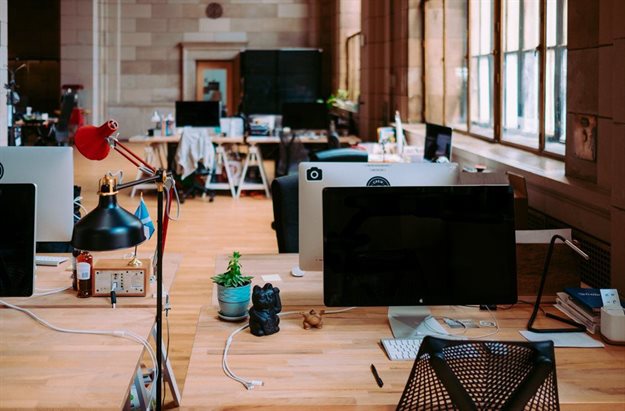The future of the office is in question after the Covid lockdown forced millions of people to work from home. The sudden boom in remote working has people speculating on the purpose of the workplace as we know it - so is this the end of office life?
No. Not according to business owners and managers who say that despite an initial period of high productivity and motivation levels, some cracks are starting to show.
Drawbacks of working remotely
Whilst the allure of working from home, with its newfound freedom and flexibility is appealing to employees, not to mention the perceived benefits to organisations who can save on the cost of a physical premises, there are drawbacks to having an entire team working remotely, and there are very real benefits to the physical office that cannot be overlooked.
Based on discussions with office tenants, the extended work-from-home lockdown period is seeing projects taking longer to complete, employee motivation levels are down, and training is proving tougher. Not to mention the daily challenges faced by home-based employees who now need to constantly juggle work and home life at the same time.
The current work-from-home arrangements are also likely to affect career development, particularly for junior employees who learn by sitting beside more experienced colleagues and watching them work. New staff who would ordinarily learn the ropes through their colleagues will also be at a disadvantage as they don’t have the same casual day-to-day opportunities to ask more experienced workers for help or advice that they would if they were working in the same office.
Organisational life is founded on relationships and relationships require ongoing interactions to nurture mutual trust and cooperation. Physical proximity is critical to fostering trusting and cooperative relationships. It’s important to have people together in a room to be able to see body language and read signals that don’t come through on a screen. Also, spontaneous interactions, brainstorming sessions and work morale all require colleagues to be together in physical proximity – these things cannot be fostered through Zoom.
And of course - the nature of what some companies do makes it tough, if not impossible, to function remotely.
So what is the solution?
The future of office work is likely to be much more flexible than ever before, but offices are not going anywhere anytime soon.
We are already seeing many of our corporate office tenants implementing blended/hybrid working environments – staff come into the office on a rotational basis so that at any one time there is a limited number of team members on site – this is to ensure social distancing for health and safety. The rest of the team then work from home on these days and then swop out, alternating the days they are in the office. This way teams can come together for a limited time on certain days of the week to bounce ideas off each other, collaborate and strategise.
Another development that we think we will see more of is businesses renting larger office spaces so that they can accommodate the entire team while still making provision for social distancing. The flexibility we are seeing at the moment in terms of reduced rentals being asked for prime office spaces makes this a very viable solution to get businesses back to full operational capacity and earnings.
Spire have a team in place to assist our tenants as well as outside parties with negotiating the change to hybrid work spaces as well as sourcing larger more suitable office premises should this be required. These are unprecedented times and much is changing, however the physical office is not going anywhere anytime soon.




























